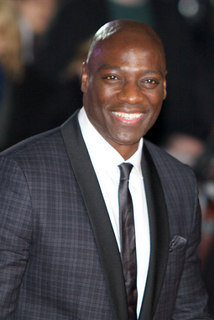A Quote by M. J. Rose
The marketability, the success of a book, ultimately rests with whether or not people will find the concept/characters/title/cover appealing.
Quote Topics
Related Quotes
People come, people go – they’ll drift in and out of your life, almost like characters in a favorite book. When you finally close the cover, the characters have told their story and you start up again with another book, complete with new characters and adventures. Then you find yourself focusing on the new ones, not the ones from the past.
When I choose the title [for my book], which was my favorite title, I felt sure there was going to be a dozen books maybe with that name already because it's so obvious to me that that's the message. I was surprised it hasn't been the title of a single book. Well, there is a Shel Silverstein children's book called Falling Upwards. But no one has chosen Falling Upward as a title and I'm very happy it's right on the cover.
I think I'm an optimistic person. Ultimately I believe in people. I believe they can be robust. When my collection Delicate Edible Birds came out there were one or two people who read the title as being a commentary on the characters within the pages, the women in the book, meaning that they were these fragile girls meant for male consumption. But I had meant the opposite - these people are tough. Dark things happen to them but they get on with life as best they can.
You have more and more people coming into the tent with the creative guys [on Hollywood films]. You have marketing and concept testers, advertising people. What you find gets the high numbers is easily appealing subjects: a baby, a big broad joke, a high concept. Everything is tested. The effect is to lessen the gamble, but in fact you destroy a writer's confidence and creativity once so many people are invited into the tent.
The best morals kids get from any book is just the capacity to empathize with other people, to care about the characters and their feelings. So you don't have to write a preachy book to do that. You just have to make it a fun book with characters they care about, and they will become better people as a result.
The scientist is not responsible for the laws of nature. It is his job to find out how these laws operate. It is the scientist's job to find the ways in which these laws can serve the human will. However, it is not the scientist's job to determine whether a hydrogen bomb should be constructed, whether it should be used, or how it should be used. This responsibility rests with the American people and with their chosen representatives.
If you get the characters right you've done sometimes nearly half the work. I sometimes find I get the characters right then the characters will often help me write the book - not what they look like that's not very important - what people look like is not about their character. You have to describe the shape they leave in the world, how they react to things, what effect they have on people and you do that by telling their story.
In my book "Sound Unbound" we traced the guy who actually came up with the main concept for the graphic design of the record cover sleeve. His name is Alex Steinweiss. And one of the things in my book that we really tried to figure out was the revolution in graphic design that occurred when people put images on album covers.


































